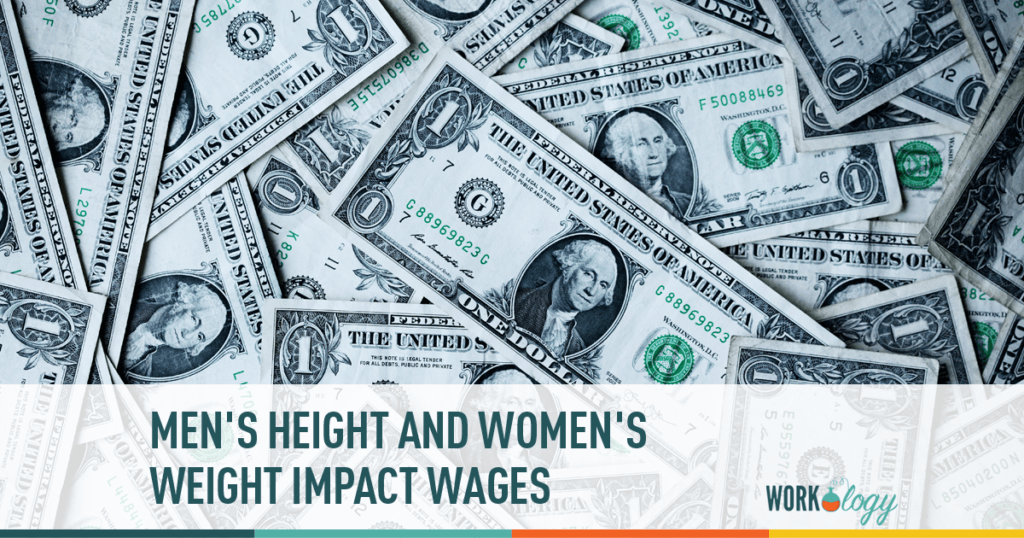A new study supports the findings of earlier studies that shorter men and heavier women earn on average less money.
Researchers have previously examined the connections between genetics, economics, height, and weight and have demonstrated variously that having a lower socioeconomic status as a child can result in shorter adult stature and higher adult weight, but that in some cases, it all comes down to genetics, and that in other cases, genes are turned on or off due to life experiences, including childhood poverty. (It is challenging.) But in every instance, discrimination in pay and promotion is more prevalent among shorter males and heavier women.
Men’s Height and Women’s Weight Impact Wages
Now researchers at Exeter University have shown a clear connection between wages and height for men, and wages and BMI for women. Every 2.5 inches below normal height resulted in a $2125 US decrease in men’s income. When a woman weighs more than the norm by 28 pounds, her salary falls by $4250 US. This study was significant since it dealt with “genetically predicted” height and weight, meaning that it examined individuals whose genes were responsible for their shorter stature or higher BMI. Please refrain from making assertions that fatness, indolence, and failure are related because the findings of the Exeter study demonstrate that people are being monetarily punished for circumstances that are completely beyond of their control.
Timothy Frayling, who coauthored the study told the Guardian that
“Many shorter men and overweight women are very successful, but science must now ask why we are seeing this pattern. Is this down to factors such as low self-esteem or depression, or is it more to do with discrimination? In a world where we are obsessed with body image, are employers biased? That would be bad both for the individuals involved and for society.”
These two forms of employment discrimination shouldn’t be a surprise to anyone working in HR, as the penalty for women being heavier and men being shorter has been proven over and over. Fatter women are less likely to be salespeople or in-person customer service reps. Shorter men are less likely to be managers. Both groups are less likely to be CEOs and are even perceived as being less intelligent and trustworthy. A 2015 Wharton study that had participants rate applicants based on competency showed that participants consistently penalized fatter applicants, perceiving them as less competent, trustworthy and hardworking.
However, this new study proves the myth underlying these two forms of discrimination by demonstrating once more that BMI is frequently influenced largely by genetics and by demonstrating that short men and fat women are discriminated against as a group without regard to whether they are short due to childhood malnutrition and thus from a “bad background” or fat due to “choice” and therefore lazy. In other words, despite the fact that this study focused on genetics rather than society, it is obvious that certain forms of discrimination are unjustified.
Unconscious bias exists in everyone, of course. But we also have the ability to recognize our prejudices and actively combat them. Making the workplace more fair and equitable requires acknowledging the ways in which our socially established biases influence our choices at work, including who gets allocated to high-profile projects and who gets picked to head teams. Discrimination against shorter men and heavier women has been repeatedly shown to exist, and it has serious ramifications for individuals who are subjected to it. It’s time to start making a change and admitting that basic human values and workplace competency have nothing to do with body type.









